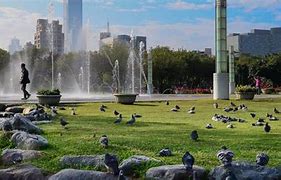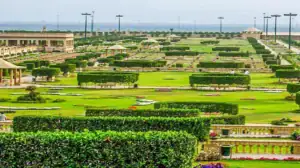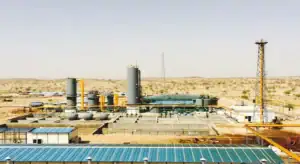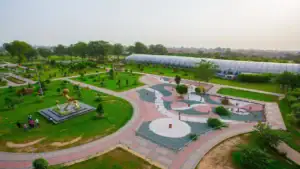Islamabad, Dec 24: The national capital of Pakistan, has become famous for its fantastic landscape and well-organized city layout. In recent decades it has emerged as a city focused on sustainability and the use of abundant green space to protect the environment and the effects of climate change in new development.
The Importance of Green Spaces in Urban Areas
Open area contributes to combating global warming, better quality of air and diversification of flora and fauna in towns and cities. As we can see in the case of Islamabad living in hills like Margalla Hills, phase out urban expansion and green belts are not impossible. Green areas:
- Reduce the urban heat island effect.
- Improve mental and physical well-being.
- Support local flora and fauna.
Key Green Initiatives in Islamabad
The Capital Development Authority (CDA) has implemented several initiatives to expand and maintain green areas in Islamabad. Some notable efforts include:
- Urban Forestry: The CDA has planted thousands of trees along major roads and in residential areas, focusing on native species like Amaltas and Neem to ensure ecological compatibility.
- Public Parks Development: Islamabad boasts over 200 parks, including:
- Fatima Jinnah Park: One of the largest urban parks in Asia.
- Lake View Park: A popular recreational area with significant greenery.
- Clean and Green Islamabad Campaign: This initiative encourages residents to participate in tree-planting drives, waste management, and awareness campaigns.
Role of Technology in Enhancing Green Spaces
Technology has gone a long way in enhancing the green of Islamabad which has become more dominant and widespread of recent time. To maintain sustainable development, the city applies geographic information systems to map and monitor green areas. Drones are also being utilized for:
- Identifying deforested zones.
- Planting trees in inaccessible areas.
- Monitoring tree growth.
Community Engagement in Green Projects
Green initiatives cannot succeed without active community participation. The Islamabad administration has:
- Partnered with local schools and NGOs to promote environmental education.
- Introduced community gardening programs where residents can cultivate plants in designated public spaces.
- Conducted workshops on waste management and sustainable living practices.
Future Plans for a Greener Islamabad
Looking ahead, Islamabad plans to:
- Expand Green Belts: Enhance existing green belts along highways and major roads.
- Eco-friendly Urban Planning: Mandate green rooftops and vertical gardens in new constructions.
- Adopt Renewable Energy: Install solar panels in parks and public spaces to power lights and other utilities.
Challenges and Opportunities
However, here too there are problems that Islamabad needs to address though it has made great strides in green initiatives. Population density and urbanization force environments to contest available green zones. But if proper planning is followed and environmental laws are implemented properly Islamabad can serve as model to other cities.
Conclusion
Open areas in Islamabad are not only ornamental features of the city but rather its key weapons in tackling climate change. There is a good work going on in Islamabad as the government and citizens in this region adopt new policies and practices towards sustainable environment.









